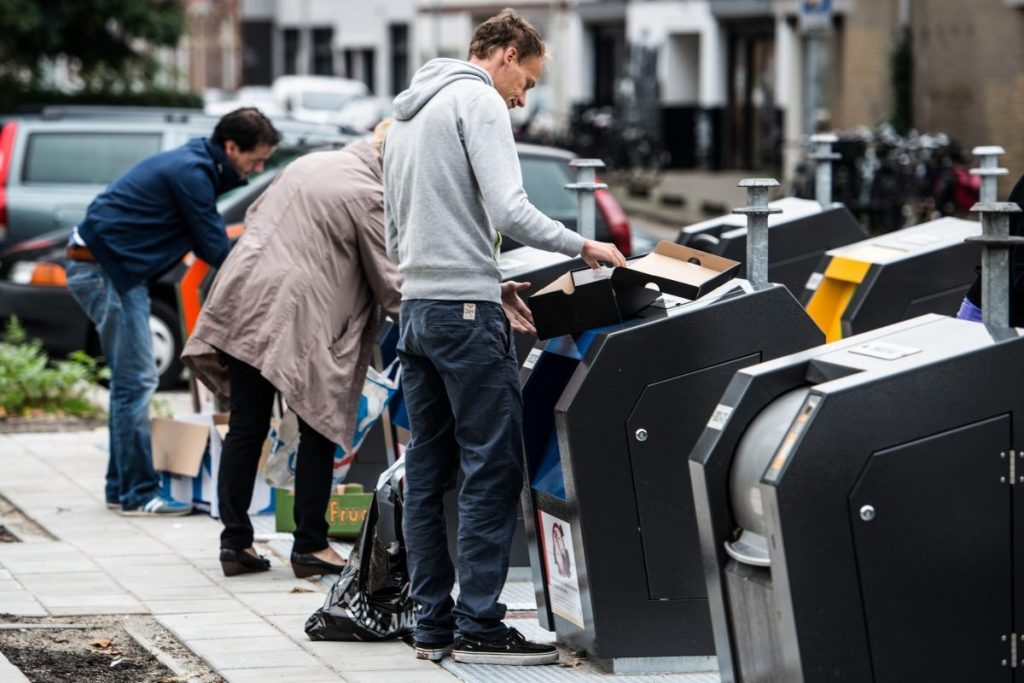The municipality of Utrecht has come up with a new approach to fighting litter. The focus is on waste around underground containers and waste that stays in parks and recreational areas.
The inconvenience caused by litter is an ongoing problem in Utrecht, which will now be treated differently under the guise of the Clean Utrecht City Action Plan. “A lot of residents are bothered by the litter and stick with it too,” says responsible alderman Case Depvin. “For example, now more than 5,000 volunteers in Utrecht clean up the garbage regularly. […] However, there are places that are still a nuisance. We are addressing these garbage hotspots with the new approach. We want to do that with our residents, business people and other stakeholders.”
The new way you know basic approach With measures taken in places where there are structural problems with litter. The municipality is talking about hot spots in those places. This includes snack sites, shopping areas, waste in canals, and business parks.
Other common hotspots are called Additions For underground containers and waste that stays in Parks and recreation areas. To this end, the municipality will devise specific approaches and associated measures.
Additions to underground containers
Over the years, the number of reports of additives (waste placed next to underground containers) has increased. In 2018, 2,810 reports were submitted, in 2019 5,307, and in 2020 this number increased to 8,735. As of 2020, the number of deleted extensions will also be tracked; The municipality removes waste from one in seven containers on a weekly basis. There are many additional placements, particularly in the Overvecht, Noordwest, and Kanaleneiland areas.
The increase in the number of additional places by the municipality can be explained, among other things, by the increase in the number of underground containers. This may sound crazy, but the municipality states that the risk of additives increases if there are more containers. The increase in online shopping also leads to more additions. Packaging is often made of cardboard, which causes containers to clog and overflow if incorrectly served.
The text continues under the image

the changes
The municipality wants to prevent extension nuisance by processing 100 percent of extension reports within 24 hours by 2022. Enforcement is also more targeted, including using data on hotspots. The municipality will mark the days and times when there is a disturbance from the extensions, so that implementers know where to go.
If law enforcement now finds waste with a full or broken container, the person who placed it will not be fined, but that will change. People who put their waste in a full or broken container can also expect a fine and the fine will increase. The fine for adding add-ons was previously 70 euros, if implementers find a violation after verification. Anyone caught red-handed adding extras will be fined €100. These fines are equivalent and will be 100 euros.
In addition, there will be neighborhood ambassadors – people from Utrecht helping neighbors get rid of waste and bulky waste – and an “extras-oriented approach”, ensuring better collaboration and reducing waste hotspots. The municipality will also recruit “container adopters”. These are the residents who get a key to the underground container, so that they can remove obstructions in the container.
Pollution in parks and recreational areas
It can get very crowded in the parks of Utrecht, especially when the weather is nice. The municipality sees “increasing use pressure” on summer days in seven city parks. This relates to Park Lepelenburg, Wilhelminapark, Griftpark, Park de Gagel, Park Transwijk and Julianapark. Apart from the city parks, there is also pollution in a number of green belts and small parks. Going forward, the municipality will not only focus on city parks, but those other sites as well.
the changes
The municipality will develop an approach for the period 2021-2024 against pollution in parks and recreational areas, in good weather and many visitors, cleaning and implementation will be used and additional temporary waste facilities will be installed. Waste containers are additionally emptied in the evening during busy periods and garbage is cleaned in the morning, at least before 9:30 in the morning. Depending on how busy it is, this can be repeated around noon time. The municipality is still investigating whether the cleaning could be made more straightforward, for example by using wheelbarrows. It must contribute to awareness.
The text continues under the image

The municipality also focuses on outreach and participation of youth and youth. Surveys conducted last year show that the majority of park visitors fall into the 17-34 age group. By deploying Clean City Utrecht coaches and collaborating with young people, the municipality hopes to work to raise awareness among young people. The municipality will continue to participate in the national Rijkswaterstaat campaign for garbage collection for park areas: ‘Leave your place clean. Well cooked’.

“Coffee buff. Twitter fanatic. Tv practitioner. Social media advocate. Pop culture ninja.”











More Stories
Which can cause an increase in nitrogen.
The Central State Real Estate Agency has no additional space to accommodate Ukrainians.
The oystercatcher, the “unlucky national bird,” is increasingly breeding on rooftops.